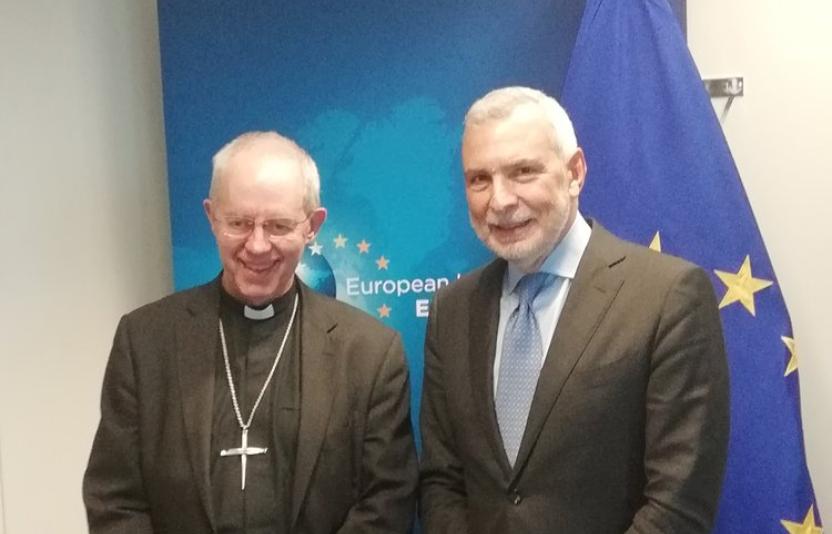A celebration of unity this Easter

In 2025, Christians of various traditions will celebrate Easter on the same day, 20 April.
According to the norms established by the Council of Nicaea (325) and later adopted for Western Christianity at the Synod of Whitby, Easter Sunday falls each year on the first Sunday following the first full moon after the vernal equinox. This calculation accepted by the Roman Catholic Church and most Protestant communities does not depend on the calculation of Passover according to the Jewish calendar. The Orthodox Church abides by a previous requirement that Easter must take place after the Jewish Passover in order to maintain the biblical sequence of Christ’s Passion. This fact, combined with the 13-day difference between the Julian and Gregorian Calendars, means that we often end up with different dates for Easter.
There have long been ecumenical calls to find a permanent solution to the different Easter dates as a visible sign of our unity in Christ. Below are reflections on this from some of the chaplains across our diocese.
The Revd Nevsky Everett, Chaplain of the Anglican Church of the Resurrection in Bucharest:
"The first time that I experienced Easter in an Orthodox country, I was profoundly moved by the sight of the Easter light passing through the crowds as hundreds of people squeezed into the courtyard of the church. This year, as we celebrate Easter on the same date as our Orthodox and Eastern Catholic brothers and sisters, we will light the Paschal candle at our vigil before heading to our Orthodox neighbours at midnight. The celebration will go on into the early hours, and we will gather again at our church on Easter morning, exhausted but full of Easter joy! This year’s common celebration is above all a reminder that the Resurrection is the source and well-spring of our common faith. To commemorate this shared inheritance in this anniversary year, our Chaplaincy Council decided that we would remove the Filioque clause from our recitation of the Nicene Creed. This small gesture is a sign of our friendship, a recognition of our common faith, and our hope for the visible unity of Christ’s Church."
The Revd Robin Fox, Priest in Charge, St Mary’s, Belgrade:
"The intersection of East and West in the Balkans is an oft-quoted truism (and let us not forget that 18 Roman Emperors - including Constantine the Great - and six Ottoman Grand Viziers - including Mehmed Pasha Sokolovic - were of Serbian origin), so it is always a great joy when that intersection becomes also a point of unity. For the Christian world all to celebrate the Resurrection of Christ together on the same day is a moving and powerful witness to the deep underlying unity of our faith. As we are united in our use of the Nicene Creed, may we also be ever more closely united in all aspects of our faith and worship."
The Revd Canon Dr Arun John, Chaplain, St Andrew’s, Moscow:
"The entire Christian world (East and West) will celebrate Easter on 20th April. It is a rare opportunity after 2017 for the Church Worldwide to celebrate the resurrection of Christ together despite observing different equinox. At St. Andrews Church in Moscow, we will be collecting Russian Easter Cake (Kulichi) to distribute to the members after Easter Service as part of our ongoing sharing of the joy of Easter with our brothers and sisters from the Russian Orthodox Church. This also coincides with the 1700 celebration of the Nicene Creed, highlighting the Unity of Godhead. A call is made that the world Church grows with one another in Unity and Peace as the Body of Christ".
Here are some resources if you would like to know more: Common Easter
This sharing of our Easter celebrations makes our Nicaean Creed celebrations all the more poignant. Please do take part, there is more information here: Celebrating Nicaea


